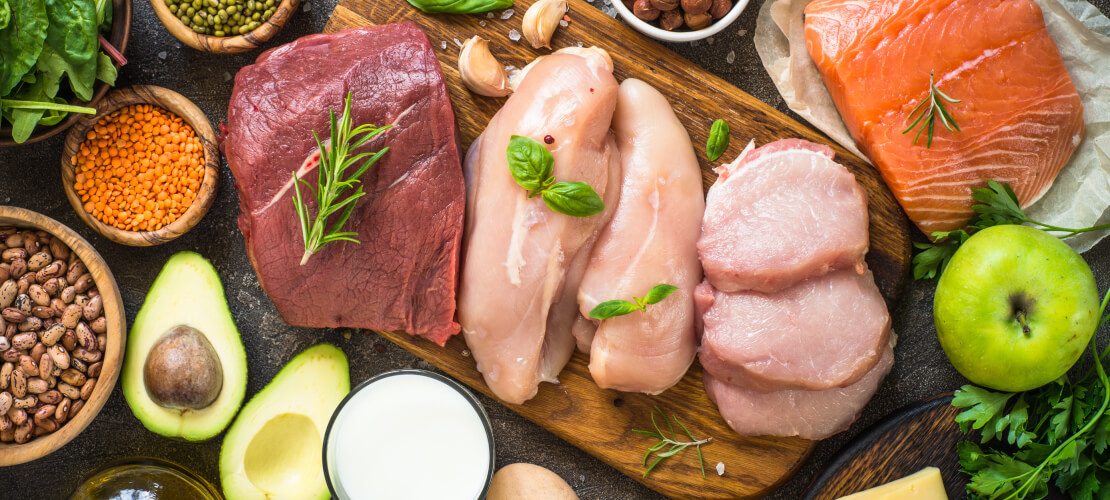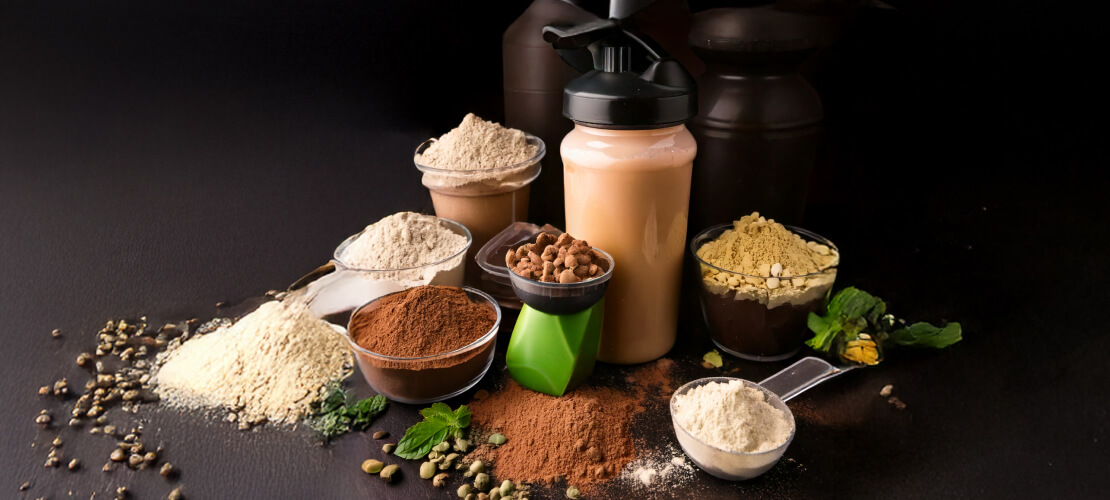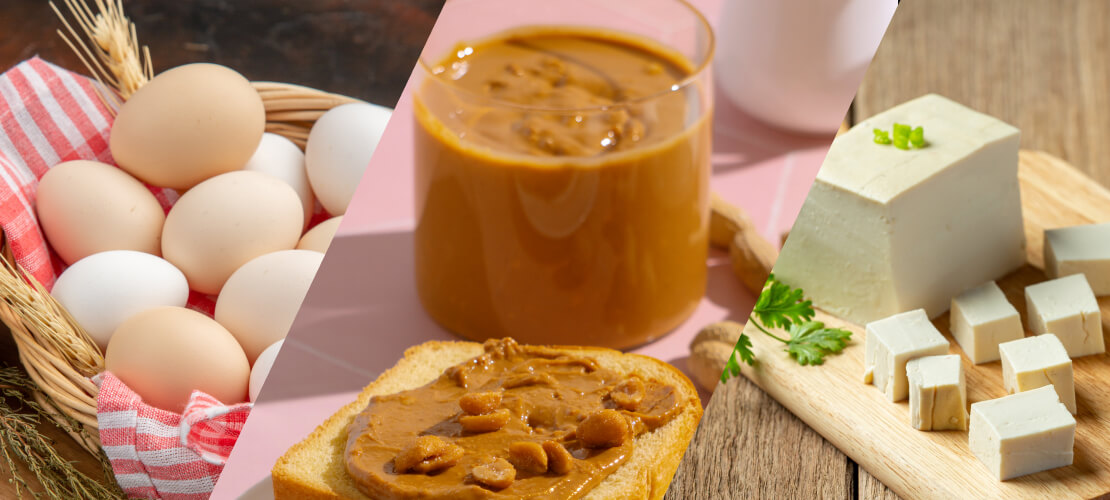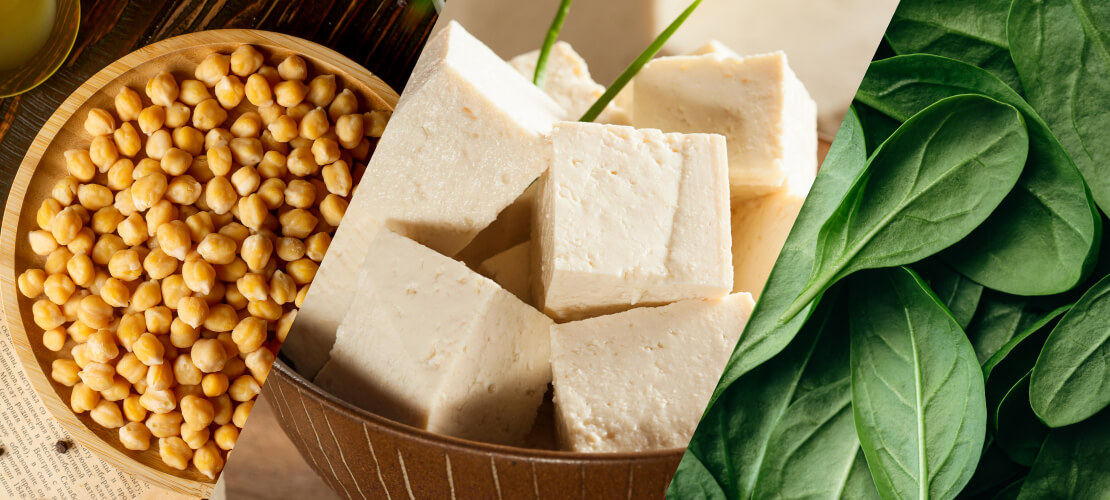Are you bored of eating the same chicken, eggs, and protein every day to meet your daily protein requirements? Well, don’t you worry because we are back with science backed details on plant protein vs animal protein.
So, let’s delve deep into the power of protein…
Protein is essential for repairing tissues, producing enzymes, strength, stronger bones, and many more bodily functions. However, not all proteins are created equal. The source of your protein—plant protein or animal protein—can make a significant difference in your nutrition and health.
But first, let’s understand how much protein your body actually needs.
RDA recommends 0.8 grams of protein per kg of your body weight for adults.
For example, if you weigh 70 kilograms and the recommended protein intake is 0.8 grams per kilogram of body weight per day:
Daily Protein Requirement = 70 kg×0.8 g/kg/day =56 grams of protein per day.
But, it may vary for athletes, gym rats, and pregnant women.
Veg vs. non-veg protein both have their own benefits and drawbacks, so let’s begin with animal protein and move our way forward.
Animal Protein
Animal protein is derived from:
- Meat: Beef, pork, lamb, chicken, turkey, and other poultry.
- Fish and Seafood: Salmon, tuna, shrimp, crab, and other fish and shellfish.
- Dairy Products: Milk, cheese, yogurt, and other dairy products.
- Eggs: Chicken eggs and eggs from other birds.
- Processed Meats: Sausages, bacon, ham, and other processed meat products.
Benefits Of Animal Protein
Animal-based proteins have many advantages, and they are part of the main diet. Firstly, proteins derived from animals contain all nine types of amino acids that our body can’t synthesize itself, so we depend on outside sources. The complete amino acid profile is needed for muscle repair, overall growth, and body functions. Animal-based food is also easily digested for its high biological value.
Animal protein is also rich in vitamin B12, which is essential for nerve function and the production of DNA and red blood cells—a benefit missing in plant-based foods. It also provides heme iron, which is again more accessible for our body to absorb than non-heme iron. The complete set of nutrition we gain from animal-based foods supports the immune system, cognitive functions, and healthy blood flow in the body.
Omega-3 fatty acids are beneficial for their anti-inflammatory properties and overall brain function.
Disadvantages Of Animal Protein
- Some meats contain high saturated fats, which, if eaten often, can lead to cholesterol.
- Excessive intake of poultry or dairy can lead to kidney problems.
- Studies have shown a higher risk of certain cancers, particularly colorectal cancer, among those who consume red and processed meats above the required amounts.
- There is a higher incidence of foodborne illnesses, such as salmonella and E. coli, from contaminated meat products.
- Some individuals can be allergic to meat, poultry, and dairy.
Plant Protein
Plant-based protein is derived from:
- Legumes (e.g., beans, lentils, chickpeas)
- Soybeans (e.g., tofu, tempeh, edamame)
- Quinoa
- Chia seeds
- Hemp seeds
- Flaxseeds
- Peas (e.g., pea protein isolate)
- Lentils
- Nuts (e.g., almonds, walnuts)
- Seeds (e.g., sunflower seeds, pumpkin seeds)
- Seitan (wheat gluten)
- Spirulina
- Nutritional yeast
Benefits of Plant Protein
Plant protein is an umbrella term referring to the wide range of sources derived from plants. It offers a nutritious alternative for vegetarians or vegans. Plant nutrition has shown a drastic improvement in blood pressure-related problems. Vegetarians display a healthier BP profile than non-vegetarians. Plant-based proteins also lack the heavy saturated fats and cholesterol found in animal proteins, lowering the risk of heart problems.
While you can find protein in plant-based foods, it is not as concentrated and holistic as animal protein. To complete your daily intake of not just proteins but also other nutrients, you must include varied foods in your diet to cover all the nutritional bases. You may find your protein in soy, tofu, and lentils, but then you might need to add a variety of veggies and fruits for other micronutrients. In easier words? You just need to eat loads of greens, fruits, whole grains, lentils, etc, if you choose this alternative to animal proteins.
Disadvantages Of Plant Protein
- No particular food is rich in varied nutrients, so you need to choose your foods for optimal nutrition consciously.
- Lack of amino acids as compared to animal protein
- Lower protein quantity means you need to optimize your food portion accordingly.
- Excess lentils and wholegrains lead to inflammatory diseases.
- Incomplete protein profile
- GMO concerns
The Bottom Line
Protein, an essential nutrient, requires special efforts to complete the daily intake. We suggest a balanced meal incorporating animal and plant-based proteins for variety and optimal nutrition. If you are vegetarian or vegan, we recommend creating a holistic meal plan to provide your body with all required nutrients. To all meat and dairy lovers, we humbly request to use the portion technique and limit their intake because, as always, too much of a good thing can also be a bad thing.
You can also add Grow Nutritional Drink to your daily routine to bridge nutrition gaps.
Remember, BALANCE IS KEY!!
Frequently Asked Questions
Yes, plant protein can be as adequate as animal protein. Plant-based sources like legumes, soy, and quinoa provide a complete amino acid profile necessary for muscle repair and overall health. They also offer additional benefits such as fiber and lower saturated fat content, supporting heart health and weight management. Integrating a variety of plant-based proteins into a balanced diet can meet dietary protein needs effectively.
Plant protein offers numerous benefits, including a lower environmental impact, reduced saturated fat content, and beneficial fiber. It supports heart health and weight management. However, some plant proteins may lack certain amino acids and can be harder to digest for some people compared to animal proteins.
Animal protein provides complete amino acids necessary for muscle repair and growth. It’s typically easier to digest and absorb than plant proteins. However, it often contains higher saturated fat levels, which can contribute to heart disease risk. Additionally, its production has a greater environmental impact compared to plant-based proteins.
Yes, you can build muscle with plant protein. Plant-based sources like soy, lentils, and quinoa provide all the essential amino acids necessary for muscle growth and repair. Combined with resistance training and adequate total protein intake, plant protein can effectively support muscle building and maintenance.




